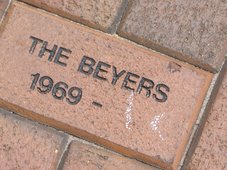Friday, July 27, 2007
Breaking The WR Grace Stalemate
A long-running bankruptcy case involving one of Columbia's biggest corporations, WR Grace, is about to get interesting.
A judge on Thursday said the company is no longer the only party in the case that can submit a Chapter 11 plan to get the specialty chemical company out of bankruptcy. Its creditors can submit their own plans.
That's an unusual step. But this is an unusual case. WR Grace filed for bankruptcy way back in 2001, forced there by people who claimed they were harmed by the company's asbestos products.
Ever since, WR Grace has been unable to come up with a bankruptcy plan that would satisfy asbestos claimants.
In a three-page order, Judge Judith Fitzgerald of the U.S. Bankruptcy Court in Wilmington, Del., granted a motion by lawyers for asbestos claimants that cut off WR Grace's control of the process:
"Termination of exclusivity will facilitate moving the case toward conclusion by changing the dynamics for negotiation while permitting (Grace) to continue to operate their business, resolve claims and participate in negotiations," the judge wrote.
Earlier this week, WR Grace said that it spent $23.6 million in the second quarter on legal expenses stemming from the case, up from $11.5 million in 2006. It warned that its liabilities and contingencies could grow depending on the outcome of the case.
A judge on Thursday said the company is no longer the only party in the case that can submit a Chapter 11 plan to get the specialty chemical company out of bankruptcy. Its creditors can submit their own plans.
That's an unusual step. But this is an unusual case. WR Grace filed for bankruptcy way back in 2001, forced there by people who claimed they were harmed by the company's asbestos products.
Ever since, WR Grace has been unable to come up with a bankruptcy plan that would satisfy asbestos claimants.
In a three-page order, Judge Judith Fitzgerald of the U.S. Bankruptcy Court in Wilmington, Del., granted a motion by lawyers for asbestos claimants that cut off WR Grace's control of the process:
"Termination of exclusivity will facilitate moving the case toward conclusion by changing the dynamics for negotiation while permitting (Grace) to continue to operate their business, resolve claims and participate in negotiations," the judge wrote.
Earlier this week, WR Grace said that it spent $23.6 million in the second quarter on legal expenses stemming from the case, up from $11.5 million in 2006. It warned that its liabilities and contingencies could grow depending on the outcome of the case.
Subscribe to:
Post Comments (Atom)





No comments:
Post a Comment